It’s been interesting following the College’s debating team this season. By working as a team and displaying some true grit, they’ve finished as champions this year. Like any team however, these students are made up of individuals with a variety of skills and personalities. Some of them are real sticklers for ‘how a debate should be run’ and stick to the script no matter what. Others, though, are clearly more tactile and responsive on their feet and act upon advice when it is given throughout the season. However they each approach the debate, speak for themselves.
So why does this happen? Sure, the ever-present appeal of a premiership is an inducement, but it could just be that these students have become better at what they do by having done it, experienced failure and done something better the next time around.
What is experiential learning?
Broadly speaking, experiential learning is learning through doing – the learner is an active participant in the educational process, not a passive witness to it. The content, idea or concept being pursued must be largely relevant to the learner, which is why English teachers argue for hours over which novels will be best for their individual mix of students. Any activity must also invoke a strong emotional reaction on the part of the learner (how strong must the emotions be for a child who finally commits to falling off their bike another 20 times so they finally ‘get it’?). This whole process then prompts reflection, change and action – in the form of new skills, attitudes, mindsets or practices.
By nature, experiential learning can happen everywhere, but is perhaps most recognisable to parents of young children. This might be in the form of a tour through a national park or zoo, a science centre or library with a hands-on section or time spent with a grandparent in the garden. All of which are experiences we have all connected our children with, and through which action prompts the acquisition of skills, knowledge and emotions.
How can schools promote experiential learning?
There are many ways in which schools promote intellectual change by having students engaged in hands-on learning:
- Mock-trials or debates
- Organising business internships
- School camps or a boarding component to campus life; here, students are responsible for some aspects of their daily life such as cleaning, time management and study
- Undertaking drills to develop specific physical skills in PDHPE
- Community service opportunities, such as work trips to support disadvantaged communities
- Study tours to international universities where students experience on-campus life and undertake undergraduate study
- Every film or novel study in English, where a student enters the world of the story and lingers on the complexities of the perspective of the protagonist
- Simulations, such as in a Business Studies class examining the factors behind stock market fluctuations
- Scientific experiments or open-ended inquiries to determine cause and effect
- Case studies of urban development in Geography
- Role-playing influential historical figures in order to understand personal motivations in a History class
- Interactive classroom games, such as Kahoot or Socrative
How to tell if experiential learning is being applied
Next time you’re visiting your child’s school or classroom, or are simply talking with them about their learning while doing some homework, take a few minutes to really observe what is happening. You may even want to use the points below as a checklist. You’ll be surprised to see how intrinsic this approach is in what a teacher actually does:
- Has an environment been created which is safe and comfortable, where a learner can be confident to take bold intellectual risks in the pursuit of self-directed discovery?
- Are students encouraged to make discoveries for themselves?
- Are students challenged to take responsibility for their own learning?
- Is feedback to teachers encouraged?
- Do students understand why the lesson is beneficial to their personal lives?
- Are extensions of both content and process sought?
- Are the chosen learning activities relevant to the interests, lives, values, perspectives and experiences of the individuals?
- Is there a sense of connectedness between the classroom and the global community?
- Are opportunities for quiet, contemplative reflection, where students can muse self-criticism of one’s own learning, available?
- Can learners be emotionally invested in what they are doing?
- Are the learners extended beyond their personal comfort zones, whether they be physical, social or cultural?
- What is the class’s attitude towards intellectual risk-taking? Is failure seen as an important part of the learning process?
Educators have long known that formal learning can often evoke limited emotional investment in a learner, and that learning is a deeply personal experience. What takes one learner a lesson to figure can take another an entire week to come to terms with – or longer, depending upon the complexity of the content being taught. Coupled with the need to prepare students to be part of a highly global workforce, good schools will instruct students through hands-on learning activities which allow them to develop their physical, social, cognitive, imaginative and emotional capacities.
The Scots College is a leader in boys’ education. To learn more about how your son could flourish with a Scots education, download a copy of our prospectus.
 Written by
Written byCameron Atkinson
Cameron Atkinson is a Sydney-based educator and administrator whose research career has explored the relationship between creativity, humour and cognitive risk-taking in the classroom. A passionate believer in the value of experiential learning, Cameron is a strong advocate for the unique opportunities for social and moral development boarding schools provide. Cameron received a BA in History from the University of Southern Queensland and a Master of Education from the University of Sydney in 2014. Cameron has worked extensively in the independent education sector in Queensland and New South Wales and enjoys reading and rowing when not taking class.






